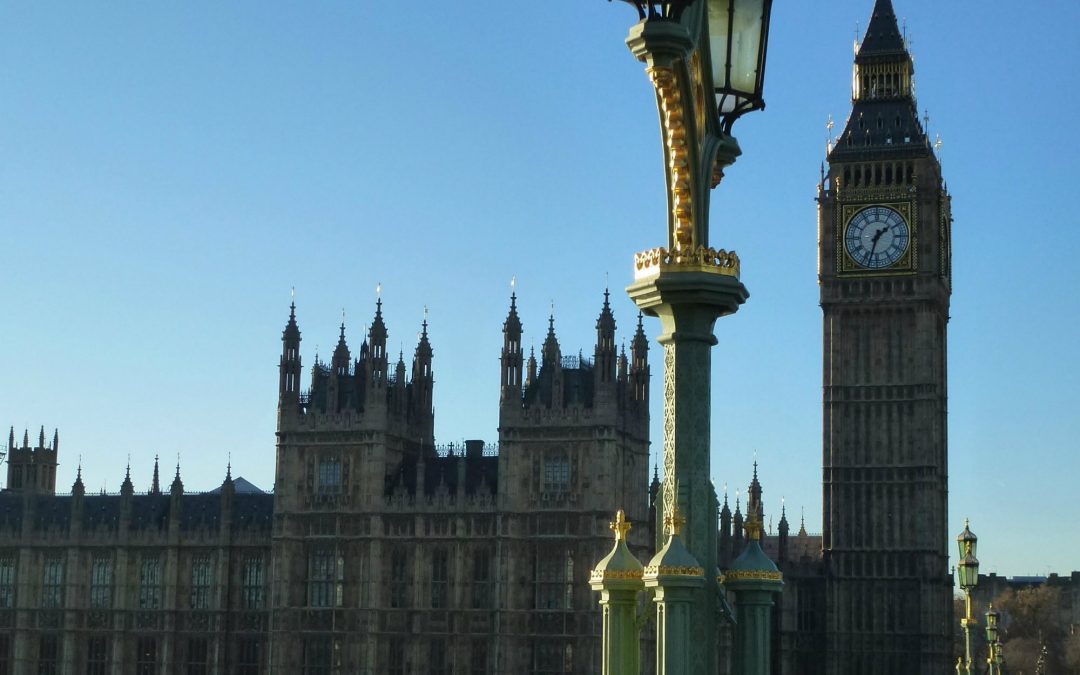By Dr Gillian Smith, Senior Lecturer in the School of Medicine
Politician-bashing is very popular at the moment as an increasingly cynical population questions the worth of their elected representatives. I may never have subscribed to that particular school of thought but I was amazed at just how hard MPs, their staff and others involved in the machine work when I recently spent time at Westminster finding out how politics is conducted in this country.
The Royal Society MP Pairing Scheme is a unique initiative that sees scientists shadow parliamentarians and civil servants in Westminster. I was invited by the Royal Society to pair with Chris Law, MP for Dundee West, and my week in Westminster was eye-opening, both in terms of the work that MPs like Chris do and how research findings can inform policy.
The week began with a reception in parliament where one of several guest speakers was Professor Brian Cox, who talked about the need for policy makers and researchers to work together to ensure the UK’s world-leading research is used to transform lives across the globe. Was I star-struck? Just a little, but the event also gave me a chance to meet the other participants in the scheme, some of the UK’s most eminent researchers in their respective fields. Each of us was chosen because we have an interest in how policy that affects every person in the country and beyond is formed. We also share a passion for public engagement and the opportunity to exchange examples of best practice with an amazing group of scientists and engineers was a fantastic experience.
The next day saw the real stuff begin when we shadowed our partnered civil servant or parliamentarian. Spending time with Chris and his staff was a real education for me as I have to confess I had no comprehension of the complexity and diversity of issues they deal with on a daily basis and the type of time pressures they face. While I was in Chris’s office news arrived that saw his team immediately broke from what they were doing to go to work on this developing situation. Chris was immediately thrown into a series of discussions with journalists, companies and others. His brilliant researchers kept him up to date throughout and furnished him with all the information he required as things developed. And as soon as that situation passed did they go back to their desks and start ticking off items on a to-do list? No, there was always something else that comes up right away that demanded their immediate attention.
I saw how heavily MPs rely on their assistants to provide high quality briefings and carry out research, very often suddenly and against almost-impossible deadlines. It showed me how different this research is to the type we carry out in the lab. Scientists are experts in very small areas. We have a depth of knowledge garnered from years and years of research and learning but the breadth of issues politicians need to know about is breathtaking. They have to parachute into any given subject at short notice and, with the help of their team, assemble the knowledge required to not just talk about it but also act upon it, all the time knowing their decisions affect many, many people. It is a real skill and impressed on me the role that we, the small-area specialists, have in making sure that the generalists have the correct, easily understandable information.
Over four very active days, myself and the other participants learned more about how Parliament works and how policy is formed. We saw how the Lords and Commons interact to scrutinise legislation. We also attended seminars and panel discussions about how evidence is used in policy making and took part in a mock Select Committee. We observed an antibiotic resistance debate, which is something very important to those of use working in medical sciences, and were given a presentation on the emergency plan should the UK ever fall victim to an outbreak of a deadly disease. It was powerful stuff, as was watching Theresa May and Jeremy Corbyn trade blows during Prime Minister’s Questions when I was once again struck by how well briefed politicians need to be on a huge diversity and range of topics.
The second part of the scheme will see Chris and his team visit the University to show them what we do and how the evidence they will one day be presented with is formed. We look forward to welcoming them here and giving them an insight into our world. I hope they are as impressed by what we do as I was by their work.



Great read Gillian. What an amazing experience that must have been.